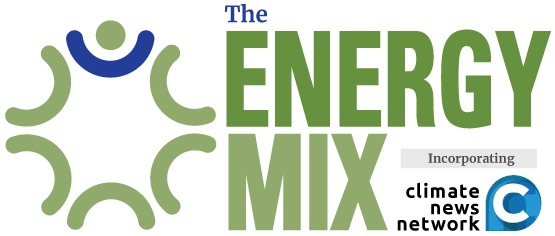Trump Administration Policies Spark Buying Spree for Low-Priced Clean Energy Stocks
While the stock market shows renewable energy businesses struggling, investors taking a longer-term view say renewables are undervalued. They see an opportunity to buy in for the long term.
“Stock prices haven’t done well over the last few years, but in the real economy, clean is booming,” Aniket Shah, head of sustainability and transition strategy at Jefferies, told Bloomberg. “When sentiment around something is low, it’s a good time to be a buyer.”
While the perceived value of renewable assets has shrunk over the last five years, companies are taking advantage of the opportunity to invest at a good price. Brookfield Asset Management, for example, recently spent US$1.7 billion to buy National Grid’s onshore U.S. renewables business, while the Caisse de dépôt et placement du Québec (CDPQ) acquired more than 3.7 gigawatts of solar, wind, hydropower, and energy storage capacity with a $10-billion deal to buy independent power producer Innergex Renewable Energy Inc.
“Major investors are hoovering up renewable assets,” RBC writes in its Climate Crunch newsletter. “Deep-pocketed investors are on the prowl.”
Donald Trump’s energy policy has decidedly favoured fossil fuels and discouraged renewables. Share prices for companies linked to energy technologies like wind and solar power fell shortly after he was elected and have continued to struggle as he undoes the clean energy investments of the Biden era. His administration’s policies have also prompted many corporations to walk back past commitments for decarbonization.
But analysts like Hortense Bioy, head of sustainable investing research for Morningstar, suggest the energy transition has enough momentum to overcome short-term uncertainty. “The long-term drivers for clean energy remain intact and the outlook for the sector remains positive.”
“History has shown that the energy transition will continue regardless of who is in the White House,” Bioy says.
Private infrastructure investors in the U.S. have been buying up stocks for solar, wind, and battery storage projects while they are available at low cost. Companies are betting that rising energy consumption and the increasingly competitive economics of renewables will continue to drive demand for the renewable energy sector.
Alex Monk, global resources equities portfolio manager at Schroders, pointed out to Morningstar that solar capacity has continued to expand despite the new U.S. administration. Political changes might slow momentum, but the reliability and low cost of renewables still make a strong business case.
There may also be a disconnect between the perceived value of renewable energy owned by public and private companies, Bloomberg reports. While publicly listed companies tend to value stocks based on near-term profitability, privately-held firms are more likely to take a long-term strategy and have more capital to weather shorter-term challenges.
A recent survey also found that businesses continue to plan to switch to renewables despite Trump’s policies, with roughly half of 1,500 companies across 15 countries saying they might relocate supply chains away from the U.S. for better renewable energy access, reports the Financial Times.
Recent analyses by the Energy Information Administration and Bloomberg project that fossil fuel use in the U.S. will continue to decline in future years, even in scenarios where Trump succeeds in rolling back environmental regulations, Benjamin Storrow and Brian Dabbs write in E&E News.
Storrow writes separately in Politico that the outlook is still not great for the climate, as the new administration’s policies would slow U.S. progress in cutting emissions. The projections also don’t take into account some factors that could change the course of the energy transition. But taken together, the trends indicate that Trump is “only a speed bump on (the) road to renewables.”
Cover photo: 李大毛 没有猫 / Unsplash


